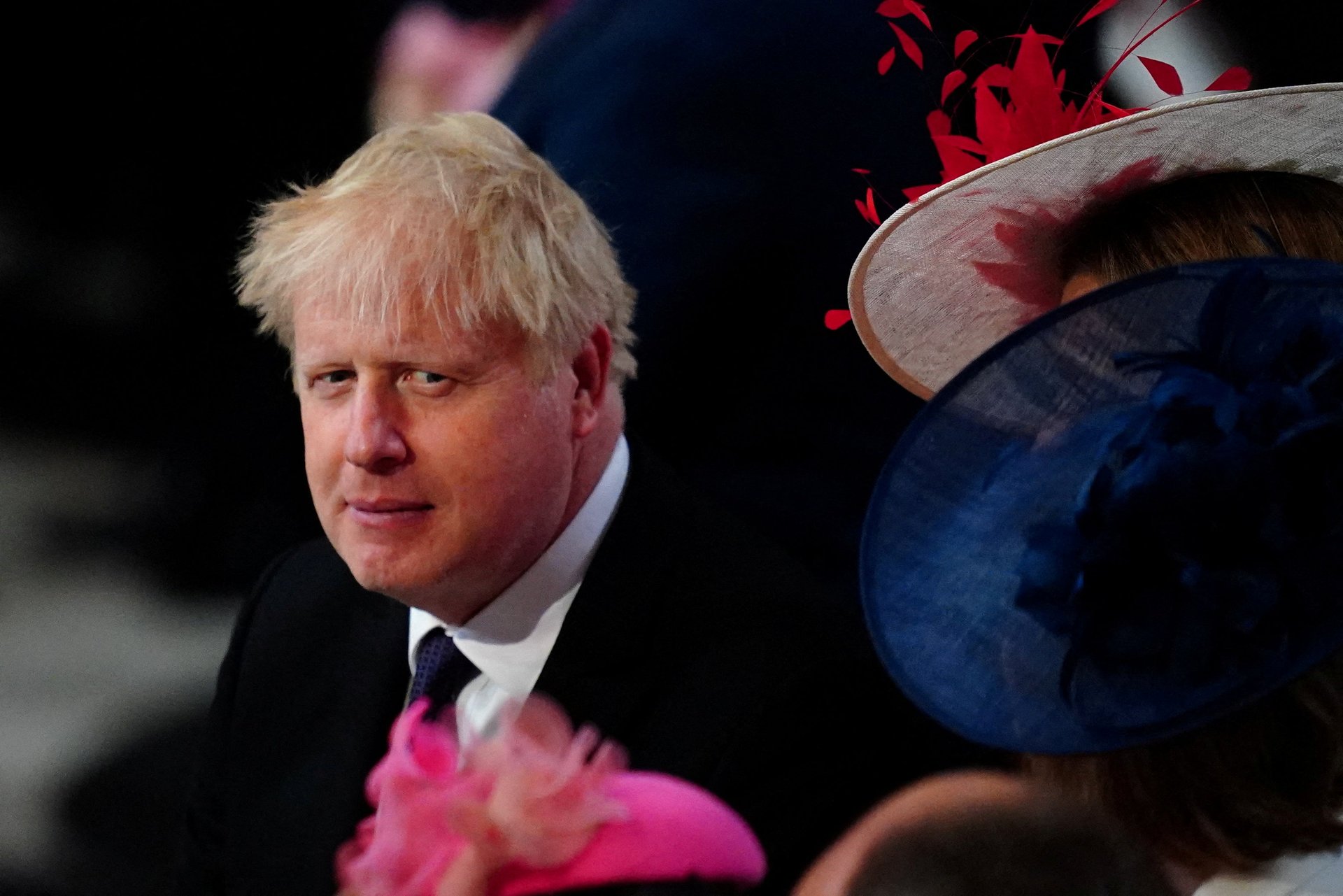🌍 No confidence vote
Good morning, Quartz readers!


Good morning, Quartz readers!
Here’s what you need to know
There were three mass shootings in the US this weekend. Philadelphia, Chattanooga, and Saginaw all saw violence, leaving nine dead, as the country still reels from shootings in Tulsa, Uvalde, and Buffalo. Senators said there is momentum for new gun legislation, though talks are ongoing.
Russia attacked Kyiv. The airstrikes followed days after the US announced $700 million in aid to Ukraine, as president Vladimir Putin warned the West against sending more arms. Meanwhile, the UK will also send Ukraine longer-range missiles.
UK prime minister Boris Johnson will face a vote of no confidence. It will take place later today, after at least 15% of conservative MPs agreed to a vote.
The Americas Summit will kick off in Los Angeles. US president Joe Biden, who has excluded Cuba, Venezuela, and Nicaragua from the meeting, is coming under close scrutiny as leaders gather to discuss policy issues including migration and inflation. Meanwhile, the US will let two companies ship Venezuelan oil to Europe.
Elon Musk won’t cut Tesla jobs after all. After calling for a 10% reduction in the car company’s staff, Musk said employee numbers will increase, but the number of salaried employees “should be fairly flat.”
A US baby formula factory will resume production. Abbott, whose February shutdown contributed to severe formula shortages, will restart operations after meeting government sanitary requirements.
An explosion in Bangladesh killed at least 49 people. The blast happened at a storage depot near the city of Chittagong, and more deaths are expected.
What to watch for
Apple’s annual Worldwide Developers Conference starts today, and the rumor mill is at full tilt. The WWDC is focused on developers and commonly includes updates to Apple’s operating systems.
This year, the New York Times reports that Apple will “unveil software tools that would allow apps to add new camera and voice functionality, laying the groundwork for a hands-free interface.” That change could prelude a bigger release next year: augmented reality goggles that look like they belong on the ski slopes.
That device, which may or may not be mentioned during WWDC, is a critical piece of Big Tech’s rush toward the so-called metaverse. Apple dominated the last big platform shift to smartphones. Giant rivals like Meta had to play by Apple’s mobile rules. This time Meta is building its own hardware and it’s Apple that’s playing catch up.
Why do countries change their names?
The UN said last week it will call Turkey by its preferred name: Türkiye. President Recep Tayyip Erdogan launched his country’s rebranding campaign last December during a wave of high inflation and economic hardship. The country’s government has long referred to itself as Türkiye.
But name changes are often more than rebranding. Renaming a place has as much to do with how the name is used internally as how it’s viewed externally, whether because of politics, history, or tourism.
Here are a few other notable name changes:
🇳🇱 Holland became the Netherlands in 2020; the country wanted people to know that it’s bigger than two provinces.
🇸🇿 Swaziland became Eswatini in 2018; the name change was driven in part by a desire to break with colonialism.
🇨🇿 Czech Republic became Czechia in 2016; if the French Republic can be France, why can’t Czechia catch on?
The legacy of Sheryl Sandberg

Sheryl Sandberg’s exit from Meta is a big shakeup for the social media behemoth. Sandberg will immediately focus on her foundation and family, but her long-term goals are harder to map, and speculation around her next steps will inevitably be shaped by gendered expectations and judgments.
✦ But, as Quartz members know from the latest Weekend Brief, her next chapter(s)—whether in politics, business, or philanthropy—will also be a data point on how the world now perceives tech companies and the people who run them. Get the brief in your inbox each week by signing up for a membership today, and take 40% off when you do.
Surprising discoveries
Tim Hortons tracked its customers. The Canadian coffee and donut chain used its app to see when people visited competitors.
Over 200,000 parking tickets will be voided in Seattle. The US city’s parking police didn’t have the proper authority to ruin people’s days.
Giraffe necks may have evolved as a weapon. Snacking on tall plants is a huge plus, but the mammal’s ancestors also may have been able to win head-butting contests.
Zinc in shark teeth is telling us a lot about megalodon. The extinct giant likely had a hard time outwitting the great white, its chief competitor at the top of the food chain.
A monthly inflation rate of 50% or more has its own name. “Hyperinflation” has happened more than 50 times throughout world history. 🎧 The latest episode of the Quartz Obsession podcast explains why we’re nowhere near hyperinflation yet.
📈 Listen on: Apple Podcasts | Spotify | Google | Stitcher
Our best wishes for a productive day. Send any news, comments, giraffe facts, and megalodon fan fiction to [email protected]. Reader support makes Quartz available to all—become a member. Today’s Daily Brief was brought to you by Walter Frick, Sarah Todd, Morgan Haefner, and Julia Malleck.